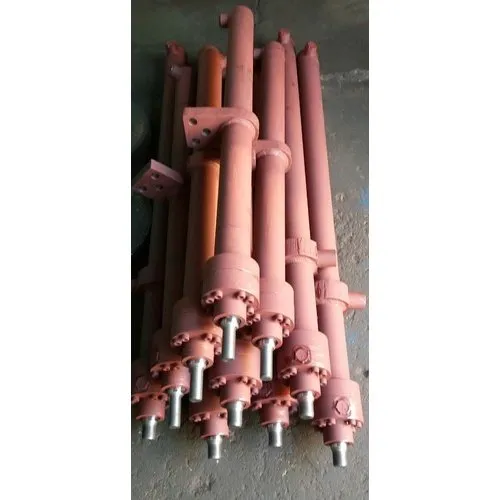250 Bar Industrial Hydraulic Cylinder
₹14,000.0
| Brand | Spareage |
| Max Pressure | 250 Bar |
| Rod Diameter | 40 mm |
| Load | 5 Ton |
| Seal Type | TTI |
| Max. Stroke | 500 mm |
We are among the reputed organizations, deeply engaged in offering an optimum quality range of 250 Bar Industrial Hydraulic Cylinder.
Features:
- Sturdy design
- Simple installation
- Rust resistance
You must be logged in to post a review.
Q & A
Hydraulics can be a sustainable technology when implemented and used properly. Here are some factors to consider regarding the sustainability of hydraulics:
Energy Efficiency: Hydraulics can be highly energy efficient when compared to other mechanical systems. They can transfer and store energy effectively, leading to reduced energy consumption and lower operating costs.
Renewable Energy Integration: Hydraulics can be integrated with renewable energy sources such as wind or solar power to create sustainable hydraulic systems. For example, hydraulic systems can be used to store energy generated from renewable sources for later use, improving the overall efficiency and sustainability of the energy system.
Lifecycle Analysis: The sustainability of hydraulics depends on the entire lifecycle of the system, including manufacturing, use, and disposal. The selection of environmentally friendly materials and proper maintenance practices can minimize the environmental impact.
Fluid Selection: The choice of hydraulic fluids is critical for sustainability. Traditional hydraulic fluids like mineral oil can have negative environmental impacts if not managed properly. However, there are now more sustainable alternatives available, such as bio-based or synthetic fluids that have lower toxicity and better biodegradability.
Waste Management: Proper waste management is crucial for hydraulic systems to be sustainable. Used hydraulic fluids and components should be disposed of or recycled appropriately to minimize environmental harm.
Maintenance and Repair: Regular maintenance and prompt repairs are essential to ensure the optimal performance of hydraulic systems. Preventive maintenance practices can help minimize energy waste, leaks, and system failures, thereby improving the sustainability of hydraulics.
Environmental Impact: Hydraulic systems can have environmental impacts due to potential leaks, spills, or disposal of hydraulic fluids. However, the risks can be mitigated through proper installation, maintenance, and adherence to environmental regulations.
In summary, hydraulics can be a sustainable technology when designed, operated, and maintained with sustainability in mind. Careful consideration of energy efficiency, fluid selection, waste management, and lifecycle analysis can contribute to the overall sustainability of hydraulic systems.
General Inquiries
There are no inquiries yet.



Reviews
There are no reviews yet.